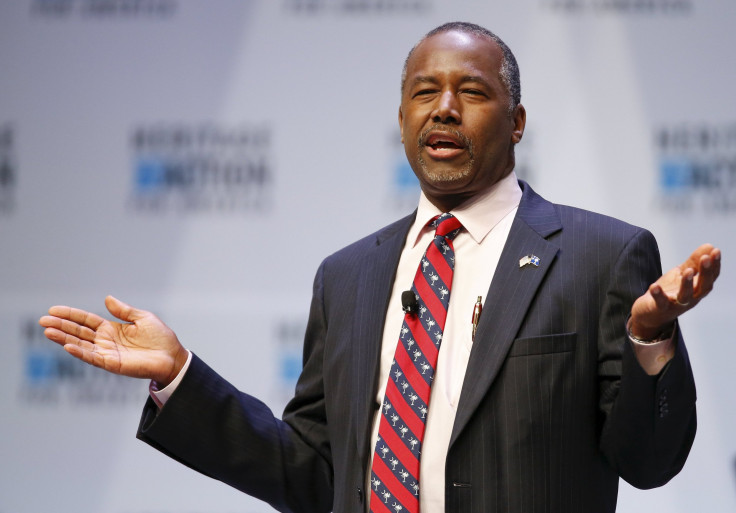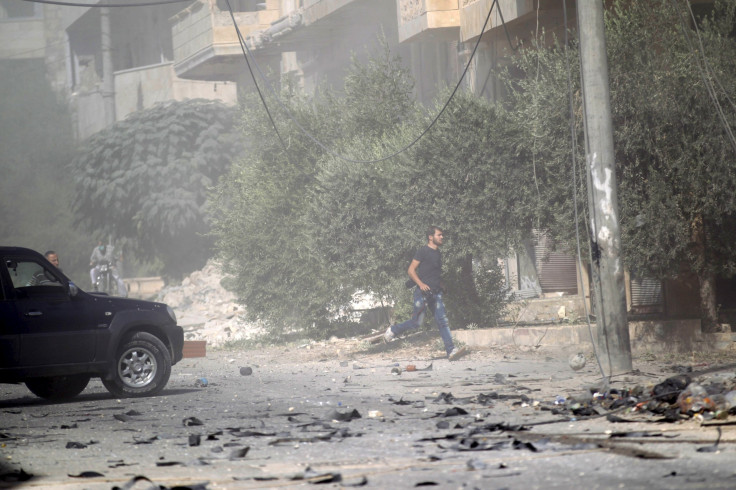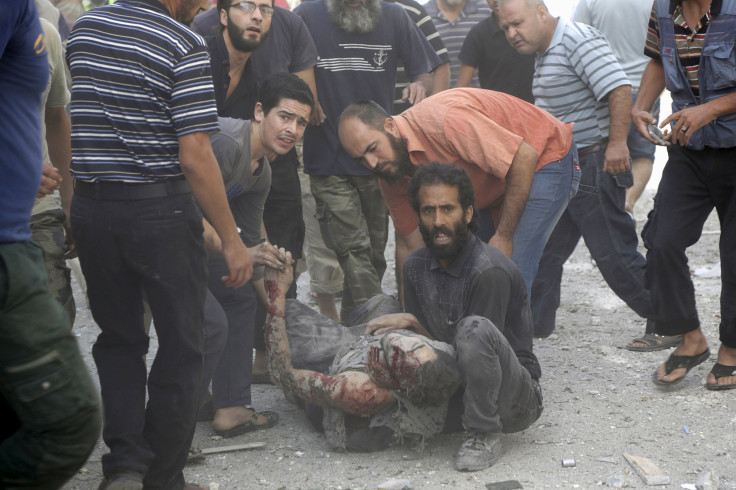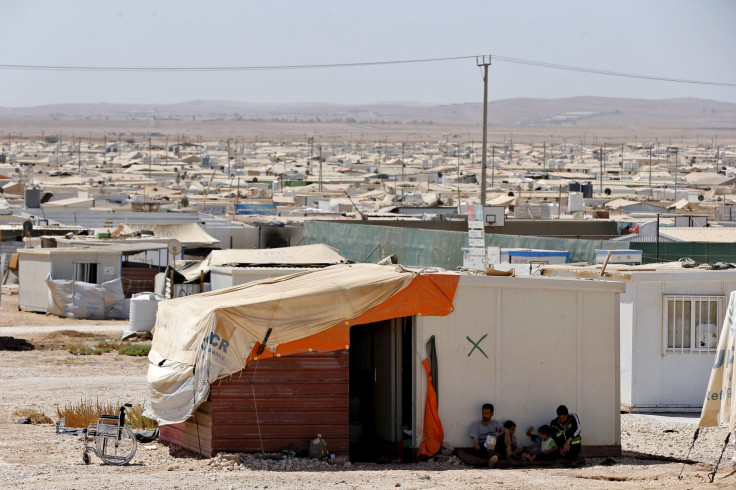Dr. Ben Carson Would Force ISIS Out Of Iraq And Into Syria: 'Let Them Fight Each Other'

Republican presidential hopeful Ben Carson Sunday recommended driving the Islamic State group out of Iraq and into Syria to allow the terrorist group to focus its attention on ousting President Bashar Assad. “Let them fight each other,” the retired pediatric neurosurgeon said on "Meet the Press."
The terrorist group also known as ISIS or ISIL controls large swaths of Iraq and Syria and has declared a worldwide caliphate. In Syria, the group has rounded up ethnic minorities, massacred them and forced their women into sexual slavery. The civil war in Syria began 4 1/2 years ago with the goal of ousting Bashar Assad as president and establishing a moderate regime. ISIS has since co-opted many of the rebel groups, while others have been defeated in their efforts to fight both ISIS and the current regime.
The fighting in Syria has displaced a significant portion of the population, sending hundreds of thousands fleeing to nearby countries and producing a wave of refugees attempting to get into Europe.

In an op-ed piece for the Hill Thursday, Carson cited ISIS atrocities and said the United States needs a new approach. "President Obama needs new ideas, new leadership in the intelligence community and a plan of action that will produce results quickly, to blunt the momentum of the Islamic State in Iraq and Syria [ISIS] and seize the initiative in the region alongside our Kurdish and Arab allies," he said.
"U.S. policy planners and the intelligence community must begin to address the reality of what we face in this war," he continued. "A Syria-Iraq-Iran-Turkey policy must be developed that treats the region as a whole. The countries and the national security issues are interwoven, and we need to address them together."
Carson also insisted that current U.S. policy prolongs the suffering of the civilian population. "This approach is immoral. It perpetuates war and suffering, and exacerbates the conditions that create hatred and foster endless revenge," he said.

Carson, however, last week told CNN he is opposed to accepting more Syrian refugees into the United States, citing the Boston Marathon bombing, which was orchestrated by two brothers from Kyrgyzstan.
"How did that screening process work for the Tsarnaev brothers?" Carson asked. "We don't know whose those people are, and the majority of them are young males, and they could easily be people who could be infiltrated by terrorists.
"If I was ISIS, if I were the global jihadists, and I knew the United States was about to take in 10,000 or 65,000 or 100,00 people from my region, I would infiltrate them with my people."
But University of California, Berkeley, lecturer Bruce Newsome said in a blog post earlier this year greater intervention by the West isn't going to happen. "For the West to even consider the commitments necessary to defeat ISIS, it would need to be provoked by ISIS with some diabolical outrage many times more lethal or more proximate to Western homelands than any of its outrages so far," he said, adding it probably would take something the scale of the Sept. 11, 2001, attacks to galvanize action.
"Without a Western-led invasion, ISIS will dominate its current territory indefinitely, in yet another lingering civil war, in yet another failed state, with yet more contagion to other states," he said.

Carson said he would approach the fight in much the same way he addresses a complex neurological issue, recommending waging an ideological fight with an engaging "cyberspace discussion" and bolstering allies like the Kurds, whom he described as "an oasis of peace, unity and reliability as an ally in the sea of Middle Eastern chaos."
© Copyright IBTimes 2025. All rights reserved.






















